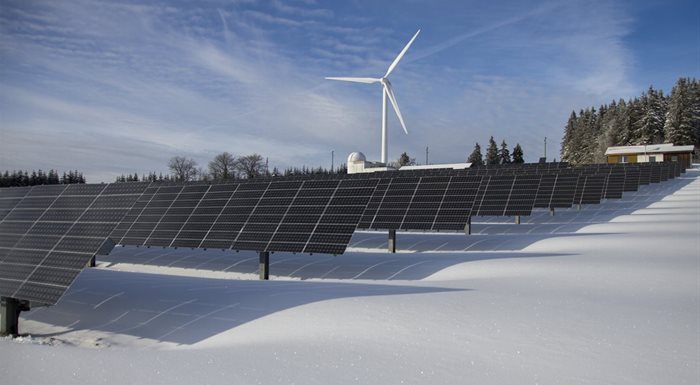South Africa's commitment to reduce climate change by moving away from fossil fuels and embracing renewable energy has attracted significant funding - most notably from COP26, where the country was pledged $8.5bn to back green project development.
While large corporates may be able to tap funding from banks and other lenders to transform their energy sources, installing large-scale projects that have the potential to feed excess energy back into the grid for profit, most SMEs are considered risky prospects by lenders and the projects are too small to attract funding.
As suppliers to large enterprises, SMEs that do not reduce their emissions may soon lose contracts on account of their poor green credentials. They also run the risk of not being in control of their power input costs and becoming uncompetitive as a result. This is a catch-22 for SMEs in one of the sunniest countries on Earth.
A sustainability start-up based in London called Decarb.Earth is promising to change this situation by aggregating SME decarbonisation projects on a platform to make investments by financiers more attractive.
Platform solves a number of problems
South African Decarb.Earth founder Marco Funk says the platform solves a number of problems simultaneously. “First, issues with stability and the price of power in South Africa are well known. In the last 15 years, the price of electricity from Eskom has shot up by more than 500% in real terms.
“Solar energy, in the sunshine-rich environment of this country, provides a stable and predictable source of power and the platform significantly reduces both up-front costs and running costs for the SME. Second, aggregating SME renewable energy projects provides diversification and scale for funders, reducing risk and making funding more attractive.
“Third, everyone in the value chain – from the customers of the SMEs to the financiers themselves – can then use the verified carbon avoidance and emissions data to highlight the role they are playing in reducing global CO2 emissions. The platform aligns all stakeholder interests,” he says.
Using blockchain technology for accountability
Decarb.Earth uses blockchain technology to underpin transparent, accurate and verifiable smart contracts. Using the blockchain, the smart contracts disburse all payments, with both payment status and energy production information recorded and updated in real-time.
“The more South Africa moves along its just transition to a green energy future, the more organisations will compete for carbon avoidance credentials and this solution offers a completely transparent and fully accountable platform for that. Carbon avoidance Non-Fungible Tokens (NFTs) can be created to explicitly demonstrate the avoidance of carbon emissions,” says Funk.
“The lack of verifiable emissions data and risk inherent in smaller businesses paying for their own renewable energy installations significantly reduces access to funding. According to SAP research in some regions of the world up to 70% of industrial carbon emissions come from SMEs so it is imperative that the global community including South Africa addresses the issue of making funding more accessible,” Funk adds.
According to Decarb.Earth’s calculations, using CO2 emissions per unit of GDP based on 2019 figures if all SMEs in South Africa switched to solar electricity around 143 mega tonnes of CO2 – or the equivalent of 20.8 million petrol-powered passenger vehicles driven for one year – can be prevented from entering the atmosphere.
“That’s 30% of South Africa’s annual CO2 emissions. The country could exceed 2030 emissions target if all SMEs switched to using solar,” says Funk.
On average, these projects achieve more than a 15% return per year in a sunny country like South Africa, which is attractive to potential funders if their concerns are dealt with. It also means the SME can reach a position of being supplied with cheaper followed by free energy.
After all repayments have been made the average solar installation will continue to be privy to a performance guarantee for another 15 to 20 years. This is a significant boost for the average SME, given the reduced input costs.
“The solution pays for itself, while also solving the issue of security of supply. It also matches with clients’ and customers’ values as South Africa becomes greener, ensuring the long-term sustainability of the business as the competitive environment changes,” concludes Funk.







































